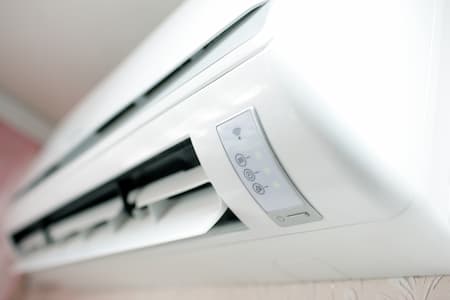How HVAC Surges Protector Safeguard Heat Pumps and Mini-Splits

Surge protectors prevent electronics from damaging their data or sensitive internal components. As air conditioning and heating systems become increasingly sophisticated, they're also becoming more vulnerable to damage from sudden power surges. If you live in an area at risk of power outages, your HVAC system could become a casualty of your next lights-out.
However, a surge protector can keep your HVAC safe when the grid goes haywire. For homeowners with heat pumps and ductless mini-split systems, a surge protector can be especially important in protecting t hem from damage or data loss during a power outage. Find out how surge protectors work and how they can protect your investment when they're most at risk.
What is a Surge Protector?
A surge protector is an additional circuit added to your home's electrical system. They typically consist of metal oxide varistors (VORs), which can resist higher electrical currents than the rest of the electrical system.
Modern VORs include sections that break during currents that are too great. These are known as thermally protected metal oxide varistors (tpVORs).
Surge protectors may also include glass discharge tubes (GDTs). These are filled with inert gasses and help the surge protector better manage excess energy.
What Causes Power Surges?
Power surges are bursts of energy over 1000V, far above the typical range of 230−240V within which most appliances operate. These short energy spikes can cause significant damage to unprotected electronics, even though they often last for less than 30 microseconds. Some of the most common causes are as follows:
- Lightning: Power lines struck by lightning can send sudden uncontrolled power surges into connected homes.
- Grid accidents: Anything that damages the grid, such as human error by utility workers, car accidents, debris strikes, or animal intrusions, can set off power surges.
- Home appliances: An estimated 50% of power surges occur due to home appliances turning on and off.
Power surges are common for many households. Unfortunately, that places some of the most sensitive components of your HVAC system at risk, including your heat pump and mini-split.
How Does a Surge Protector Protect an HVAC System?
An HVAC system is like any other appliance in your house. A surge protector redirects excess current into a ground wire away from your HVAC system. This can be especially important for HVAC systems susceptible to power surges, such as mini-splits and heat pumps.
How a Surge Protector Can Save Your Heat Pump or Mini Split
Power surges can melt the electrical wires around a heat pump's motors. During a blackout, which often strikes during summertime, your home could overheat if your heat pump does not have a surge protector.
Mini-splits, on the other hand, are smaller than most HVAC components. That makes them highly vulnerable to power surges. An unprotected mini-split could permanently damage its sensitive electrical components during a blackout.
Protect Against Blackouts with HVAC Surge Protectors
Installing surge protectors for your HVAC system and its major components, including its heat pump and any mini-splits, can help you protect against electrical surges. During the warm, stormy summer months, a surge protector can save thousands and keep your home cool and comfortable.
We Service And Repair All Major Brands






We Aren't Comfortable Until You Are! Contact Our Air Conditioning & Heating Experts In Milpitas Today!